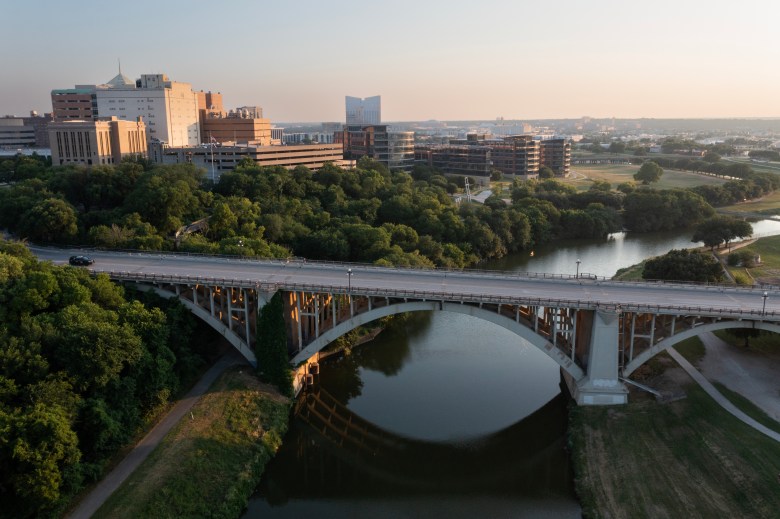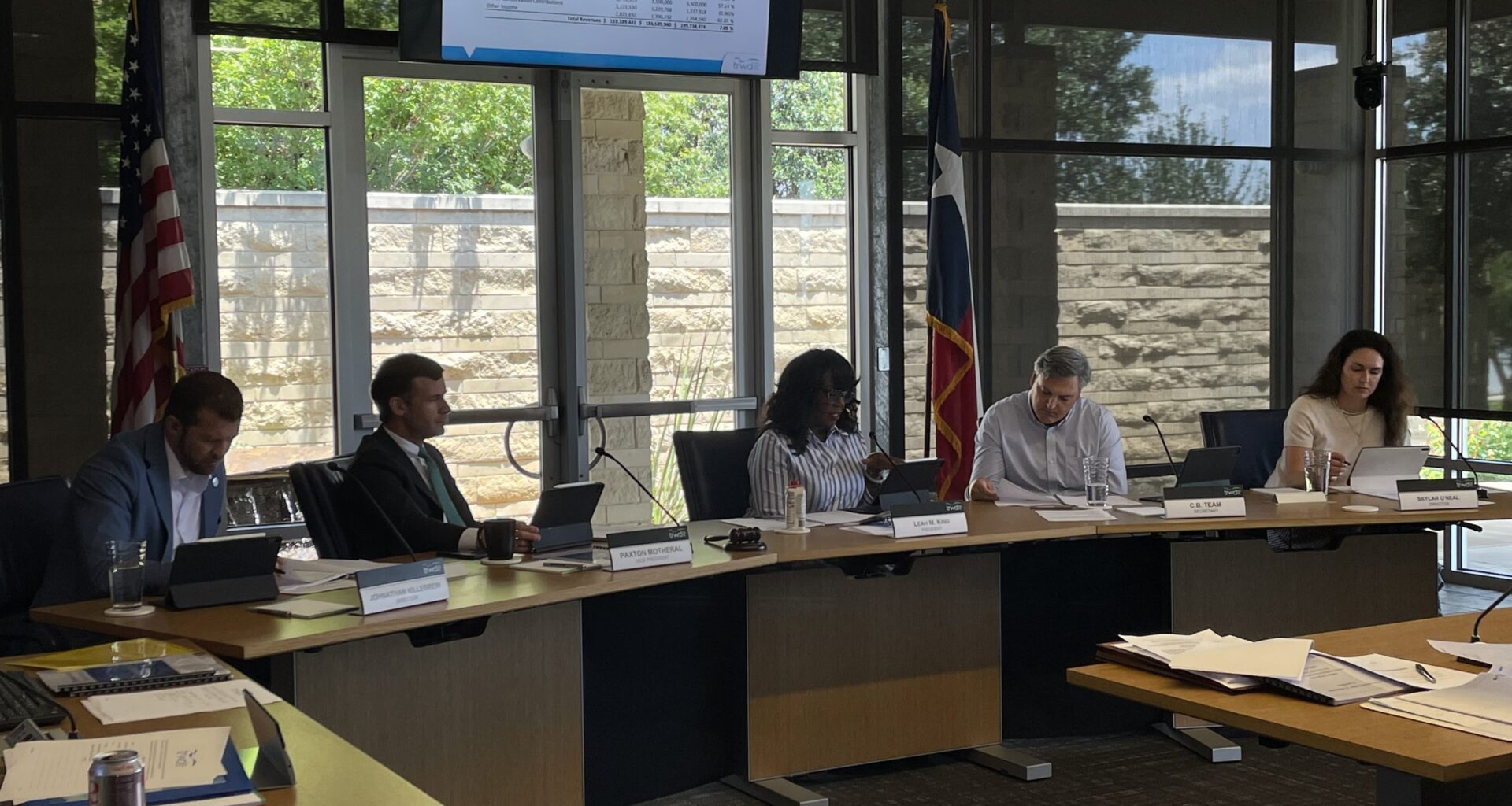As regional water leaders prepare to sell land on the future Panther Island, Tarrant Regional Water District officials approved $57.3 million for next year’s budget for the flood control project.
That budget does not include spending more than $12 million on a canal planned to reroute floodwaters near the city center.
Board members unanimously approved the water district’s 2026 budget and tax rate at their Sept. 16 meeting.
The water district’s budget includes revenue earned from property taxes to fund the agency’s mission of providing flood control and recreation along local lakes and reservoirs. Homeowners within the agency’s tax district can expect to see a decreased tax rate of 2.65 cents per $100 valuation.
That’s slightly down from the current 2.67 cent tax rate for the water district.
Officials projected the district to raise about $32 million from property taxes in the next fiscal year, almost a 10% increase in taxes collected in 2025 due to higher property appraisals across the county.
While the tax rate for homeowners will decrease, the agency is increasing its water sales rate by 2.2% for the upcoming year, putting the new rate at $1.43 per 1,000 gallons. That rate is what municipalities, such as the cities of Fort Worth and Arlington, pay for raw water that is later treated for safe drinking and use.
The money raised through water sales will fund $2.2 billion worth of major projects over the next seven years. Those include the Marty Leonard wetlands storage (formerly Cedar Creek wetlands); replacements for aging water and pipeline infrastructure; water storage expansions; new operation facilities; and continued construction of the Integrated Pipeline Project, which pulls water from East Texas reservoirs.
These projects support the Tarrant Regional Water District’s water expansion efforts through 2050 as the officials expect its customer population to nearly double within the next 50 years.
Central City flood control
The $1.16 billion Panther Island / Central City flood control project calls for the construction of a bypass channel to reroute the Trinity River and floodwaters away from 2,400 acres in downtown Fort Worth.
The U.S. Army Corps of Engineers is tasked with the construction of the bypass. With north and south bypass channels, the project will create the appearance of a natural island, dubbed Panther Island, on hundreds of acres of former industrial land between downtown and the Northside neighborhood.
The water district pays its share of the flood control portion of the project through $250 million in bonds approved by voters in 2018.
The $57.3 million budgeted for 2026 from the water district for the Central City flood project budget is less than the $85 million approved for the current fiscal year.
The water district’s Central City budget covers costs for constructing a pedestrian bridge, land acquisition, demolition, environmental assessments and debt issued through bonds.
The canal construction will account for an additional $12 million out of the water district’s overall budget.
Although $45 million was budgeted for the construction of canals last year, most of those funds went unspent, according to budget documents.
The water district is responsible for designing and constructing a canal system that will run through the future Panther Island, connecting developments to other parts of the island and serving as the primary method of stormwater and flood control.
Construction on the canal system is set to begin late next year, budget documents show.
Panther Island development, recreation
 The Paddock Viaduct, also known as the Main Street Viaduct, goes over the West Fork of the Trinity River north of downtown Fort Worth. The river will be rerouted through a bypass consisting of a north and south channel to steer flood water away from development. (Rodger Mallison | Fort Worth Report)
The Paddock Viaduct, also known as the Main Street Viaduct, goes over the West Fork of the Trinity River north of downtown Fort Worth. The river will be rerouted through a bypass consisting of a north and south channel to steer flood water away from development. (Rodger Mallison | Fort Worth Report)
The water district set $800,000 aside for Panther Island sales consulting in the next fiscal year for the first phase of the project’s development, which will go toward selling 36 acres of water-district owned land.
The first phase of development planning is scheduled to begin this fall, water district program manager Susan Alanis said during a Trinity River Vision Authority board meeting in July.
Water district officials are working with the real estate advisory firm U3 Advisors to create a strategic plan to sell the district’s land on Panther Island.
Another $3.3 million of the water district’s budget will go toward implementing system improvements, such as enhanced trail safety, to align with the agency’s recently adopted recreation master plan.
Over $928,000 is budgeted for recreational events and environmental stewardship taking place along the Trinity River and other lakes, such as for the district’s Fort Worth’s Fourth and Mayfest.
Nicole Lopez is the environment reporter for the Fort Worth Report. Contact her at nicole.lopez@fortworthreport.org.
At the Fort Worth Report, news decisions are made independently of our board members and financial supporters. Read more about our editorial independence policy here.
Related
Fort Worth Report is certified by the Journalism Trust Initiative for adhering to standards for ethical journalism.
Republish This Story
Republishing is free for noncommercial entities. Commercial entities are prohibited without a licensing agreement. Contact us for details.
